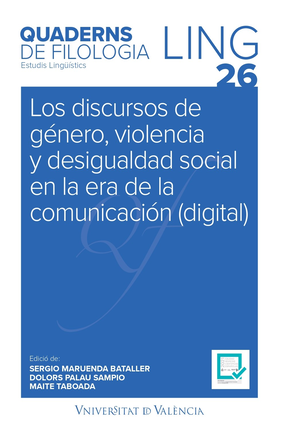“The warrior princess raised an eyebrow, while the pimp dangled his nuts below his trousers”. The narrative co-construction of homoeroticism on the web
DOI:
https://doi.org/10.7203/qf.0.21977Keywords:
Queer studies, heteronormativity, social construction of desire, keyness. Abstract
Abstract
Combining core concepts of sociology and Freudian psychoanalysis with the corpus linguistics methodology, this paper follows in the wake of previous quantitative queer studies on the social production and regulation of sexuality and gender (Baker, 2004, 2005, 2014, 2018; King, 2015; Milani, 2013), in order to explore the role of language in the construction of the erotic imaginary of a Spanish-speaking gay community on the Web. Using Sketch Engine, the keywords of a corpus of amateur gay and lesbian erotica were analyzed to shed light on the symbolic representations and discursive mechanisms that guide the co-construction of homosexual erotic desire on the Web. Adding significant nuances relevant for the Hispanic culture, the results of the analysis confirm the thesis maintained by Baker (2005), according to which internet homosexual communities continue to reproduce and perpetuate ancestral heteronormative archetypes in their narratives of highly idealized sexual encounters.
 Downloads
Downloads
Downloads
Published
How to Cite
-
Abstract1490
-
PDF (Español)1118
Issue
Section
License
 Este obra está bajo una licencia de Creative Commons Reconocimiento-NoComercial-SinObraDerivada 4.0 Internacional.
Este obra está bajo una licencia de Creative Commons Reconocimiento-NoComercial-SinObraDerivada 4.0 Internacional.
Authors who publish with this journal agree to the following terms:
- Authors retain copyright and grant the journal right of first publication with the work simultaneously licensed under a Creative Commons Attribution License that allows others to share the work with an acknowledgement of the work's authorship and initial publication in this journal.
- Authors are able to enter into separate, additional contractual arrangements for the non-exclusive distribution of the journal's published version of the work (e.g., post it to an institutional repository or publish it in a book), with an acknowledgement of its initial publication in this journal.
- Authors are permitted and encouraged to post their work online (e.g., in institutional repositories or on their website) prior to and during the submission process, as it can lead to productive exchanges, as well as earlier and greater citation of published work (See The Effect of Open Access).



